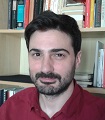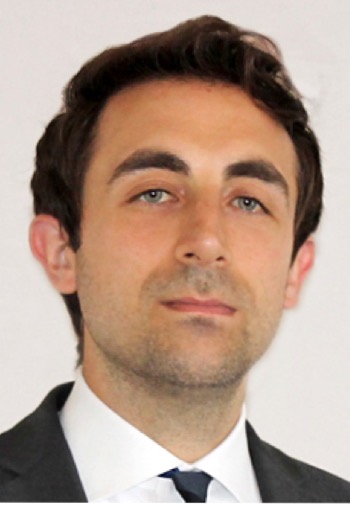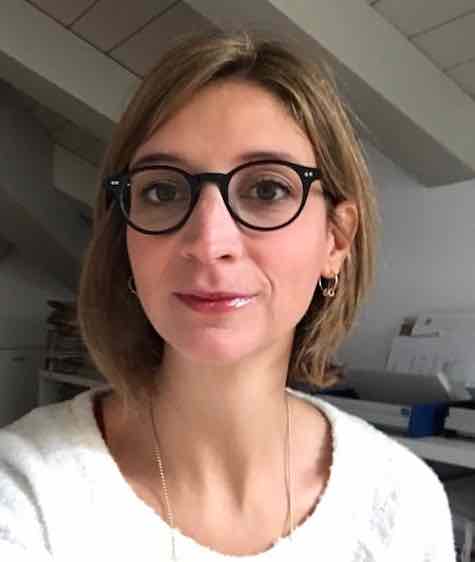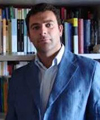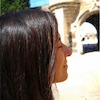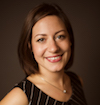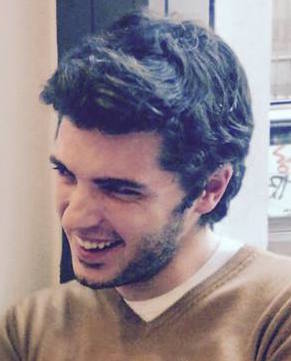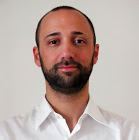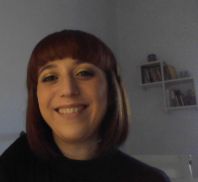Studying at the University of Verona
Here you can find information on the organisational aspects of the Programme, lecture timetables, learning activities and useful contact details for your time at the University, from enrolment to graduation.
Academic calendar
The academic calendar shows the deadlines and scheduled events that are relevant to students, teaching and technical-administrative staff of the University. Public holidays and University closures are also indicated. The academic year normally begins on 1 October each year and ends on 30 September of the following year.
Course calendar
The Academic Calendar sets out the degree programme lecture and exam timetables, as well as the relevant university closure dates..
| Period | From | To |
|---|---|---|
| I semestre (Lingue e letterature straniere) | Sep 30, 2019 | Jan 11, 2020 |
| Annuale (Lingue e letterature straniere) | Sep 30, 2019 | May 30, 2020 |
| II semestre (Lingue e letterature straniere) | Feb 17, 2020 | May 30, 2020 |
| Session | From | To |
|---|---|---|
| ESAMI LINGUE - sessione invernale | Jan 13, 2020 | Feb 15, 2020 |
| ESAMI LINGUE - sessione estiva | Jun 3, 2020 | Jul 25, 2020 |
| ESAMI LINGUE - sessione autunnale | Aug 24, 2020 | Sep 19, 2020 |
| Session | From | To |
|---|---|---|
| LAUREE LINGUE - sessione autunnale (a.a. 2018/19) | Nov 4, 2019 | Nov 9, 2019 |
| LAUREE LINGUE - sessione straordinaria (a.a. 2018/19) | Mar 30, 2020 | Apr 4, 2020 |
| LAUREE LINGUE - sessione estiva (a.a. 2019/20) | Jul 6, 2020 | Jul 11, 2020 |
| LAUREE LINGUE - sessione autunnale (a.a. 2019/20) | Nov 2, 2020 | Nov 7, 2020 |
| LAUREE LINGUE - sessione straordinaria (a.a. 2019/20) | Apr 7, 2021 | Apr 13, 2021 |
| Period | From | To |
|---|---|---|
| Festa Ognissanti (Lingue) | Nov 1, 2019 | Nov 1, 2019 |
| Sospensione delle lezioni | Nov 2, 2019 | Nov 2, 2019 |
| Vacanze di Natale (Lingue) | Dec 23, 2019 | Jan 6, 2020 |
| Vacanze di Pasqua (Lingue) | Apr 10, 2020 | Apr 14, 2020 |
| Festa della Liberazione (Lingue) | Apr 25, 2020 | Apr 25, 2020 |
| Festa del Lavoro (Lingue) | May 1, 2020 | May 1, 2020 |
| Sospensione delle lezioni | May 2, 2020 | May 2, 2020 |
| Festa del Santo Patrono (Lingue) | May 21, 2020 | May 21, 2020 |
| Sospensione delle lezioni | May 22, 2020 | May 23, 2020 |
| Festa della Repubblica (Lingue) | Jun 2, 2020 | Jun 2, 2020 |
| Vacanze estive (Lingue) | Aug 10, 2020 | Aug 15, 2020 |
Exam calendar
Exam dates and rounds are managed by the relevant Foreign Languages and Literatures Teaching and Student Services Unit.
To view all the exam sessions available, please use the Exam dashboard on ESSE3.
If you forgot your login details or have problems logging in, please contact the relevant IT HelpDesk, or check the login details recovery web page.
Should you have any doubts or questions, please check the Enrollment FAQs
Academic staff
 daniele.beltrame@univr.it
daniele.beltrame@univr.it
 bernardo.calabrese@univr.it
bernardo.calabrese@univr.it
 silvia.cavalieri@univr.it
silvia.cavalieri@univr.it
 riccardo.cella@univr.it
riccardo.cella@univr.it
 elisa.dallarosa@univr.it
elisa.dallarosa@univr.it
 sara.dattoma@univr.it
sara.dattoma@univr.it
 jacopo.galavotti@univr.it
jacopo.galavotti@univr.it
 veronica.gobbato@univr.it
veronica.gobbato@univr.it
 diegogabriel.krivochen@univr.it
diegogabriel.krivochen@univr.it
 stefania.montemezzo@univr.it
stefania.montemezzo@univr.it
 chunye.niu@univr.it
chunye.niu@univr.it
 simone.pregnolato@univr.it
simone.pregnolato@univr.it
 fabioantonio.scrignoli@univr.it
fabioantonio.scrignoli@univr.it
 tania.triberio@univr.it
tania.triberio@univr.it
 francesco.zuin@univr.it
francesco.zuin@univr.it
Study Plan
The Study Plan includes all modules, teaching and learning activities that each student will need to undertake during their time at the University.
Please select your Study Plan based on your enrollment year.
1° Year
| Modules | Credits | TAF | SSD |
|---|
1st foreign language2nd foreign language1st foreign literature and cultureGerman literature and culture 1
2nd foreign literature and cultureGerman literature and culture 1
2° Year activated in the A.Y. 2020/2021
| Modules | Credits | TAF | SSD |
|---|
1st foreign language2nd foreign language1st foreign literature and culture or a related courseEnglish literature and culture 2
French literature and culture 2
German literature and culture 2
Spanish literature and culture 2
2nd foreign literature and culture or a related courseEnglish literature and culture 2
French literature and culture 2
German literature and culture 2
Spanish literature and culture 2
Italian literature and culture
Geography of communication and international trade
Modern and Contemporary Economic History
Theory and Techniques of communication
3° Year activated in the A.Y. 2021/2022
| Modules | Credits | TAF | SSD |
|---|
1st foreign language2nd foreign languagePrinciples of international marketing
| Modules | Credits | TAF | SSD |
|---|
1st foreign language2nd foreign language1st foreign literature and cultureGerman literature and culture 1
2nd foreign literature and cultureGerman literature and culture 1
| Modules | Credits | TAF | SSD |
|---|
1st foreign language2nd foreign language1st foreign literature and culture or a related courseEnglish literature and culture 2
French literature and culture 2
German literature and culture 2
Spanish literature and culture 2
2nd foreign literature and culture or a related courseEnglish literature and culture 2
French literature and culture 2
German literature and culture 2
Spanish literature and culture 2
Italian literature and culture
Geography of communication and international trade
Modern and Contemporary Economic History
Theory and Techniques of communication
| Modules | Credits | TAF | SSD |
|---|
1st foreign language2nd foreign languagePrinciples of international marketing
| Modules | Credits | TAF | SSD |
|---|
Legend | Type of training activity (TTA)
TAF (Type of Educational Activity) All courses and activities are classified into different types of educational activities, indicated by a letter.
Russian literature and culture 2 (2020/2021)
Teaching code
4S002915
Teacher
Coordinator
Credits
9
Language
Russian
Scientific Disciplinary Sector (SSD)
L-LIN/21 - SLAVIC STUDIES
Period
I semestre (Lingue e letterature straniere) dal Sep 28, 2020 al Jan 9, 2021.
Learning outcomes
At the end of the course students are expected to: 1) know the most important moments and the main peculiarities of the Russian History, as well as the essential elements of 19thcentury structures of the Russian language; 2) apply the acquired knowledge to the analysis of the literary works presented during the classes, with the help of the provided critical references; 3) have the ability to formulate autonomous judgments about the main themes of the course, and to explain them in a correct and coherent form.
Program
St. Peterburg and Moscow in Russian Literature and Culture of Twentieth Century
Primary sources:
A. Belyj, Peterburg (Pietroburgo) (selezione di pagine)
A. Blok, Dvenadcat’ (I dodici)
E. Zamjatin, My (Noi)
M. Bulgakov, Master i Margarita (Il Maestro e Margherita)
A. Achmatova, Rekviem (Requiem)
V. Grossman, Žizn’ i sud’ba (Vita e destino)
A. Solženicyn Archipelag GULag (Arcipelago gulag) (selezione di pagine)
Secondary sources:
C. De Lotto, Una parabola sulla salvezza in «Vita e destino» di Vasilij Grossman, in Interpretazione e trasformazione, MIMESI, 2017, pp. 155-170
Introduzione, in A. Achmatova, La corsa del tempo. liriche e poemi, a cura di Michele Colucci, Torino, Einaudi, 1992, pp. V- XLVII.
G.P. Piretto, Quando c’era l’URSS. 70 anni di storia culturale sovietica, Milano, Raffaello Cortina Editore, 2018 (selezione di pagine);
Ju. Lotman, La casa ne Il Maestro e Margherita, trad. di M. Vanin, eSamizdat 2005(III) 2–3, pp. 31–36 (http://www.esamizdat.it/ojs/index.php/eS/issue/view/14/15)
A.M. Ripellino, “Pietroburgo: un poema d’ombre”, in A. Belyj, Pietroburgo, a cura di A.M. Ripellino, Aldephi, Milano 2014.
General reference:
— AA.VV., Storia della letteratura russa. Il Novecento, Torino, Einaudi 1989-1991 (le parti relative agli autori e agli argomenti trattati);
— P. Buskovitch, Breve storia della Russia. Dalle origini a Putin, Torino, Einaudi, 2013 (i capitoli relativi al Novecento).
| Author | Title | Publishing house | Year | ISBN | Notes |
|---|---|---|---|---|---|
| P. Bushkovitch | Breve storia della Russia. Dalle origini a Putin | Einaudi | 2013 | ||
| M. Colucci | Introduzione, in A. Achmatova, La corsa del tempo. liriche e poemi, a cura di Michele Colucci, Torino, Einaudi, 1992, pp. V- XLVII. | Einaudi | 1992 | ||
| G. P. Piretto | Quando c'era l'URSS. 70 anni di storia culturale sovietica | Raffaello Cortina Editore | 2018 | 9788832850567 | |
| AA.VV. | Storia della letteratura russa. Il Novecento | Einaudi | 1991 |
Examination Methods
Final evaluation: oral exam.
The questions will cover any of the topics mentioned in the programme. Students will be asked to read, translate, and analyse the literary passages proposed during the classes.
The assessment will consider the following criteria:
- Content accuracy and completeness
- Achievement of adequate analysis abilities
- Clarity in the exposition, arguing ability, and knowledge of the subject-specific lexicon.
Pre-requisites:
This exam cannot be taken before having passed the following exams: Русский язык 1 and Русская литература 1.
Итоговый контроль: устный экзамен.
При проведении итогового контроля вопросы экзамена будут отражать основные понятия и темы курса.
Кроме того, oдним из аспектов проверки на экзамене является чтение, а также перевод и анализ литературных текстов.
Критерии контроля качества знаний:
- точность и полнота ответа с точки зрения содержания
- способность самостоятельного анализа
- ясность изложения, умение аргоментировать и владение специальной терминологией и лексикой дисциплины.
Условия допуска к экзамену:
- К экзамену допускаются только студенты, успешно сдавшие экзамены по русскому языку и литературе за первый год обучения (Lingua russa 1 и Letteratura e cultura russa 1).
Type D and Type F activities
| years | Modules | TAF | Teacher |
|---|---|---|---|
| 1° | Seminario metodologico di analisi del testo letterario [Gruppo 1] | D |
Andrea Zinato
|
| 1° | Seminario metodologico di analisi del testo letterario [Gruppo 2] | D |
Andrea Zinato
|
| years | Modules | TAF | Teacher |
|---|---|---|---|
| 1° 2° | History of English Literature (F-O) [Cognomi A-E] | D |
Annalisa Pes
(Coordinator)
|
| 1° 2° | History of English Literature (F-O) [Cognomi F-O] | D |
Annalisa Pes
(Coordinator)
|
| 1° 2° | History of English Literature (F-O) [Cognomi P-Z] | D |
Annalisa Pes
|
To discover all the teaching activities accredited by the foreign teaching college click here
Career prospects
Module/Programme news
News for students
There you will find information, resources and services useful during your time at the University (Student’s exam record, your study plan on ESSE3, Distance Learning courses, university email account, office forms, administrative procedures, etc.). You can log into MyUnivr with your GIA login details: only in this way will you be able to receive notification of all the notices from your teachers and your secretariat via email and soon also via the Univr app.
Student login and resources
Gestione carriere
Assegnazione tutore
Attività accreditate D/F
Calendario didattico dettagliato
Cambio lingua curriculare
Competenze informatiche
Competenze linguistiche (prima e seconda lingua)
Competenze linguistiche in triennale (terza lingua CFU F)
Compilazione del piano didattico
Corso di Lingua portoghese
Erasmus+ e altre esperienze all'estero
Linguistic training CLA
Presentazione dei corsi di studio e Open day
Graduation
List of theses and work experience proposals
| Stage | Research area |
|---|---|
| PROGETTO MAMBRINO Stage per bibliografia | Various topics |
Saperi minimi
Stage e tirocini
Nel piano didattico della laurea triennale in Lingue per il turismo e il commercio internazionale (L12) è previsto un periodo di stage obbligatorio (CFU 6) in organizzazioni imprenditoriali.
Le attività di stage sono finalizzate a far acquisire allo studente una conoscenza diretta in settori di particolare interesse per l’inserimento nel mondo del lavoro e per l’acquisizione di abilità professionali specifiche.
Le attività di stage sono svolte sotto la diretta responsabilità di un singolo docente presso studi professionali, enti della pubblica amministrazione, aziende accreditate dall’Ateneo veronese.
I crediti maturati in seguito ad attività di stage saranno attribuiti secondo quanto disposto nel dettaglio dal “Regolamento d’Ateneo per il riconoscimento dei crediti maturati negli stage universitari” vigente.
- Tutte le informazioni in merito agli stage per futuri studenti sono disponibili alla pagina Stage e tirocini.
- Tutte le informazioni in merito agli stage per studenti iscritti sono pubblicate in MyUnivr - come fare per - stage e tirocini.
- Tutte le informazioni in merito agli stage per le aziende sono disponili alla pagina Stage e tirocini per azienze.
Ulteriori informazioni al seguente link https://www.univr.it/it/i-nostri-servizi/gestione-carriere-studenti-lingue-e-letterature-straniere/stage-e-tirocini-lingue-e-letterature-straniere

 +39 045802 8409
+39 045802 8409

